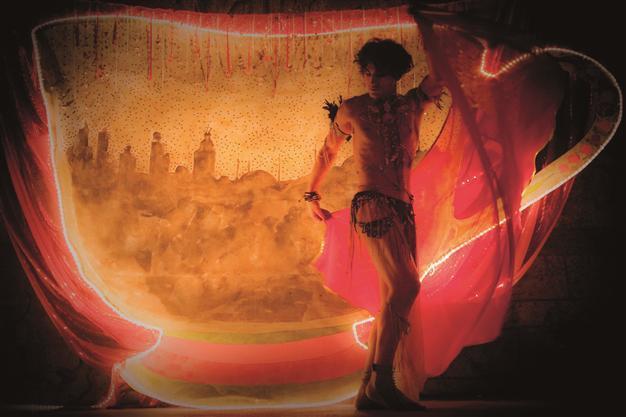Portrayal of transgenders in Turkish films, or lack thereof
EMRAH GÜLER ANKARA - Hürriyet Daily News

‘Zenne’ is based on the true story of Ahmet Yıldız, a gay man gunned down by his father in 2008 after coming out to his family.
Thousands marched yesterday in Istanbul’s Taksim Square, proudly waving the rainbow flag as they brought an end to a month of pride. June is the month when we see pictures adorned with the colors of the rainbow and even more colorful LGBT communities walking together across the world to celebrate pride.
The idea behind the celebration of pride is to commemorate the 1969 Stonewall riots that kick-started the gay rights movement in the United States, and more so, remind the status quo that gay, lesbian, bisexual and transgender communities demand an end to ostracization and equal rights.
While we’re used to seeing pictures from Western countries of over-the-top celebrations of pride, carefully picked by the media to marginalize the events, Turkey itself is not new to Pride Week, which concludes with the Pride Parade.
The very first Pride Week was organized in 1993 when various panels and events took place behind close doors because the Istanbul Governor’s Office had denied permission for more high-profile activities. It wasn’t until a decade later that Pride Week would close with a parade that was attended by a mere 30 people. The number increased exponentially each year, with around 10,000 people gathering and marching against homophobia and transphobia last year. But to the mainstream media, it’s still a marginal event that does not have much news value.
Transvestism as comedy
Turkey might be more accepting and tolerant of the first three letters of the LGBT communities, but when it comes to transgender people, not so much. This year, Trans Pride Week was a separate event, ending with a Trans Pride Parade that was held for the third time. The event was tenser than hoped for as a nationalist group attempted to attack the parade.
In fact, trans communities almost always come lowest in a hierarchy where the right to justice, ostracization and fair representation are concerned. Turkish cinema is no exception, with transgender characters either used for comic relief or serving to reinforce their image as bitter sex workers – that is, if we are talking about male-to-female transvestites or transsexuality.
Veteran film critic and historian Agah Özgüç identifies the very first trans character in Turkish cinema in director Muhsin Ertuğrul’s 1923 work “Leblebici Horhor,” in which the male lead dresses like a woman to save his girlfriend.
In the following decades, until the 1980s, stories in which men dressed as women were almost unanimously seen in comedies. In the Turkish version of Billy Wilder’s timeless classic “Some Like It Hot,” two popular actors, Sadri Alışık and İzzet Günay, dress as women to escape the mafia before falling for the same girl. Perhaps the last example of transvestism used as a source of comedy came in 1984 with one of the most popular comedies in Turkish cinema, “Şabaniye,” in which the central plot revolves around men dressing as women to hide their identities.
‘Other Angels’ and ‘Zenne Dancer’The much-publicized sex change of Turkish singer Bülent Ersoy in the 1980s marked the first film in Turkish cinema to feature a story of a transsexual going back to his childhood, 1980’s “Beddua” (Damning), in which Ersoy starred as the leading character.
In 1993’s “Gece, Melek ve Bizim Çocuklar” (The Night, the Angel and Our Gang), late director Atıf Yılmaz takes a heart-wrenching look at sex workers in Istanbul. It is one of the first films that came closest to portraying transgender characters as more than merely cardboard characters.
Director, writer, producer Emre Yalgın’s debut feature of 2010, “Teslimiyet” (Other Angels), was at once a brave attempt to shine a light on the lives of the transgender community in Istanbul, with LGBT activists both starring in the movie and as part of the crew.
Perhaps the most popular Turkish movie that put a range of diverse LGBT characters at its center was this year’s “Zenne” (Zenne Dancer). The word zenne meaning a male dancer dressed up as a woman, and directors Mehmet Binay and M. Caner Alper’s film featured an out-and-about flamboyant dancer.
“Zenne” was based on the true story of Ahmet Yıldız, a gay man gunned down by his father in 2008 after coming out to them.
“It’s a very special film for us,” said Umut Güner, spokesperson for Kaos GL, an LGBT organization, and writer for the Kaos GL magazine. “It brought to screen some of the important issues for the LGBT cause such as hate crimes, and the complications for gay men [in trying to avoid] mandatory military service.”
Let’s hope that “Zenne” has opened the way for a more realistic portrayal of LGBT characters.
